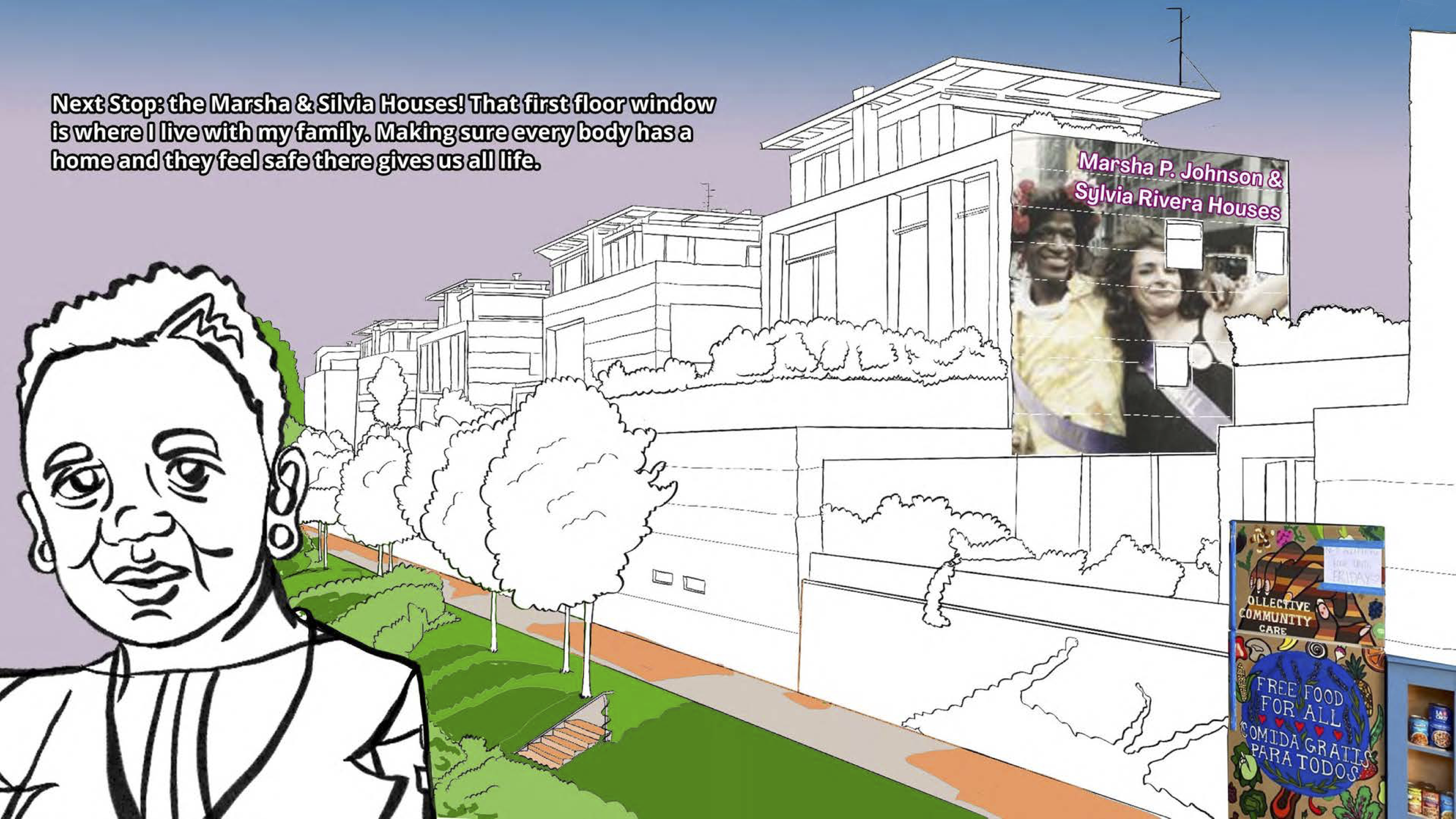DIANA ROSARIO, KAREN HURTADO AND KARINA HURTADO-OCAMPO
A coloring book and workbook for families to imagine their part in regenerative solidarity economies and a just transition.
About the Artists
Lead artists Diana Rosario, Karen Hurtado and Karina Hurtado-Ocampo are a team of women of color who grew up in the same apartment building in Jackson Heights, New York. They grew closer as they found ways to protect each other from the extractive and predatory economy during the initial COVID-19 pandemic. Together they have been part of the solidarity economy through mutual aid, cop watching, child and elder care, and community fridges. Karen Hurtado is a Queens-born, Colombian-raised, peer educator and graphic designer based out of Westchester, NY. Diana Rosario is an Afro-Dominicana speaker who has different practices for sharing and connecting with students and masters. Karina Hurtado-Ocampo is a filmmaker and cultural worker with experience creating alongside young people, immigrant, and queer communities.
Brittney Nicole Washington joined the “All Aboard the Freedom Express” team during the post-production phase and illustrated key components of the story. She uses painting, illustration, and filmmaking to broaden our spectrum of human experiences in media.
Website
View and download the rest of the project artwork
This work is licensed under a Creative Commons Attribution-NonCommercial-NoDerivatives 4.0 International License. By downloading this art you agree the terms of this license.
All Aboard the Freedom Express - coloring book and workbook
For families to imagine their part in regenerative solidarity economies and a just transition. The story follows Sol, a nonbinary child of color, as they show us their life in a liberated future. Thanks to the grassroots survival strategies employed by community members during the COVID-19 pandemic, in the future we live as part of an economy that gives us life rather than takes it away. During their journey Sol asks children and families to reflect on important questions ranging from their emotional well being to identifying liberatory spaces and regenerative practices. For example, do they know the names of the Indigenous communities whose land they’re on? Who should they go to in case of an emergency if their parents aren’t home? Can they eat any of the plants growing nearby? What freedom songs have they learned from elders? Can they sing a song for us?





